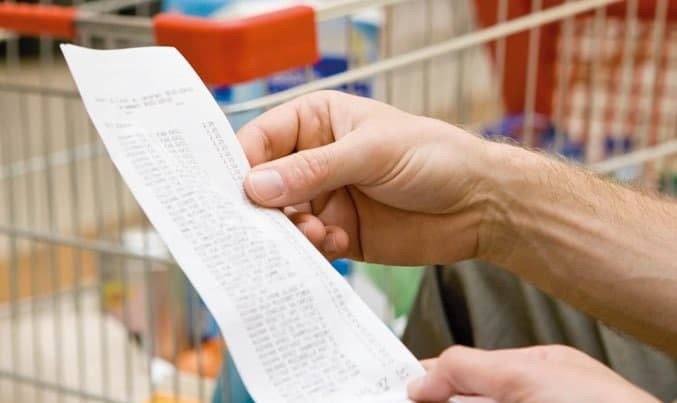Consumer watchdog considers start of year “very complicated for families”
For all the self-congratulations shared by Portugal’s outgoing Socialist government, the truth is that 2024 will see the cost of living increase exponentially.
From essential foods to goods and services, there is very little that is not increasing – and in some cases, like water charges, the hikes represent percentages “never seen before”.
Consumer association DECO warns the start of the year will be very difficult for many families, while reports over the weekend referred to buoyancy of public accounts: to the end of November the ‘surplus’ held by the Ministry of Finance ran to around €6.4 billion – that is, “a growth of more than €4.3 billion in comparison with the same month of the year before”.
Just in tax revenue, November saw more than €5.1 billion pouring in, “an increase compared to the same month in 2022 of €684.8 million (or +15.4%)”, writes tabloid Correio da Manhã.
But first to the “generalised price increases”. These are coming in:
- electricity – due to go up by 3.7% on the regulated market
- water – regulatory entity ERSAR is recommending suppliers increase charges by an average of 8.5%
- Telecommunications – operators NOS, MEO and Vodafone have confirmed 4.6% increases from February 1
- natural gas – an increase of around 4% expected
- rents – the government has given its blessing to a 6.94% increase, the highest since 1994
- motorway tolls (except for formerly SCUT highways of Algarve and interior, which were never meant to be tolled)
And then there is the ‘bombshell’ coming on Friday when the government’s ‘cushion’ against rising inflation (the ‘IVA Zero’ on essential foods) is removed.
When that happens, supermarkets throughout the country will suddenly become a great deal more expensive.
Expresso devotes a double page spread to the shock arriving, saying the cost of a hamper of essential (basic) foods “will hit its highest price ever”.
When people go into supermarkets on Friday they will notice their bills “substantially more expensive (…) IVA will be returning to 46 essential products, which will translate into a direct increase of 6% (…) The tax’s return will see a generalised hike in various products”, says the paper. A bottle of olive oil, already so much more expensive than it was this time last year, could increase again by as much as 15%, Gonçalo Lobo Xavier of APED, the Portuguese distributors’ association, warns.
Consumer watchdog DECO Proteste has done its calculations and believes the weekly increase to people’s food shopping will be “more than €20”, or roughly another €250 per year. The cost of the ‘basic hamper’ since the start of IVA Zero in January last year, “will increase by €63”.
This is where the ‘exaltation’ of outgoing PS Socialists at increasing the national minimum wage to €820 per month starts to loose its validity: the rising cost of living is ripping any financial benefit from the low paid, who have very little margin for ‘adjustments’.
As Expresso explains, citizens have already ‘cut back’ on what they buy/ how they spend their money. In food terms, this has seen them opting for ‘marcas brancas’ (cheaper brands) and buying less. “Often the choices forced translate into less healthy eating”, says the paper – stressing that what is basically happening (and contrary to the govermment’s ‘mantra) is that “the conditions of the lives of Portuguese citizens have been deteriorating over recent years, overwhelming for the most vulnerable” (meaning the poor, of which there would be over four million were it not for social benefits).
“According to INE (national statistics institute) poverty is increasing, as is the percentage of the population without the financial capacity to absorb unexpected expenses, or heat their home for example”, says the paper. Associations like DECO know this only too well, as do the various entities running food banks, which are seeing “increasing numbers of families asking for help”.
But there is some ‘good news’ in that with inflation slowly coming down, interest rates are stabilising. The costs households have with mortgages will start to come down, albeit “very slowly and never in the proportion in which they went up, nor to the levels they were at before” says DECO’s Natália Nunes.
All in all, concludes Expresso, 2024 will be “another tough year”; a year that is also an election year against a backdrop of failing public services.




















